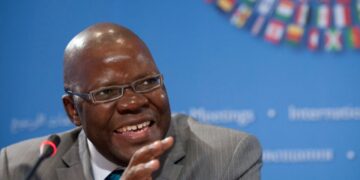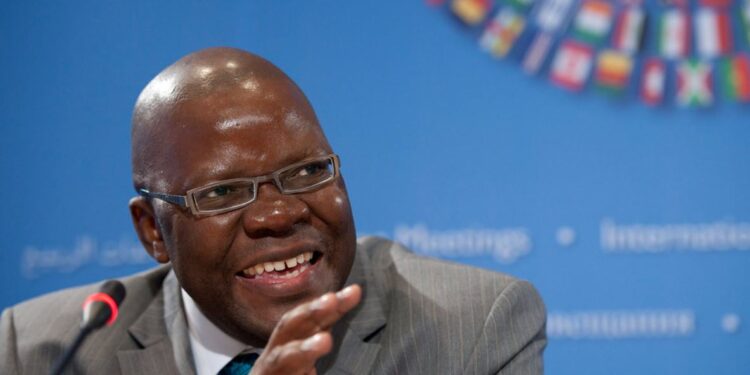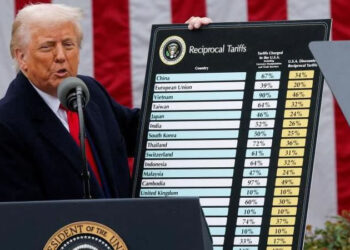By Ebi Kesiena
Former Zimbabwe Finance Minister Tendai Biti has warned that if President Emmerson Mnangagwa’s administration decides to abandon the dollar, the country could face an economic “catastrophe.”
This warning came after Zimbabwe applied to join the New Development Bank (NDB) established by the BRICS economic bloc – Brazil, Russia, India, China and South Africa.
In an X post on Wednesday, Biti added that shifting from the US dollar would be likeminded with BRICS and other proponents of a new world order who advocate de-dollarization.
“The regime is intent on de-dollarization. This move will be an absolute disaster & will cost workers & pensioners,” Biti wrote
Biti also noted that Zimbabwe does not have the economic stability to abandon the dollar, contributing to the heated debate about de-dollarization.
This debate has been fueled by concerns that the United States is leveraging the dollar-based global financial system as a weapon in response to the Ukraine conflict.
Zimbabwe’s dependence on dollar
Zimbabwe has dealt with a prolonged economic crisis, as proven by July’s inflation rate of 101.3 percent compared to the previous year.
Although the country’s official currency is the Zimbabwean dollar, Reserve Bank of Zimbabwe Governor John Mangudya informed Bloomberg in July that the US dollar was used in 75 percent of transactions within the country.
Finance Minister Mthuli Ncube frequently urges citizens to adopt the local currency. However, even government employees demand their salaries in US dollars, asserting that most service providers exclusively accept the greenback.
In 2019, Zimbabwe’s government prohibited using foreign currencies as official legal tender. President Mnangagwa said that the nation’s economy was heavily influenced by US dollar pricing — contributing significantly to inflation, as reported by the BBC.
In June 2022, Zimbabwe was compelled to lift this ban to combat rising inflation. As discussions about de-dollarization intensify in emerging economies, citizens are apprehensive about the potential impact on their daily lives.
De-dollarization efforts continue
Over time, de-dollarization discussions became more intense, especially among BRICS nations. During a recent August summit, there were discussions about the potential establishment of a shared currency among BRICS nations.
However, the summit concluded without any declarations regarding a unified currency. During the meeting, BRICS leaders also offered conflicting statements about de-dollarization.
The BRICS bank started its de-dollarization journey by boosting loans in the respective local currencies of its member nations. NDB President Dilma Rousseff informed the Financial Times that it anticipates lending between $8 billion to $10 billion by the year’s end. He highlighted the bank’s goal of rolling out 30 percent of its loans in local currencies.




































